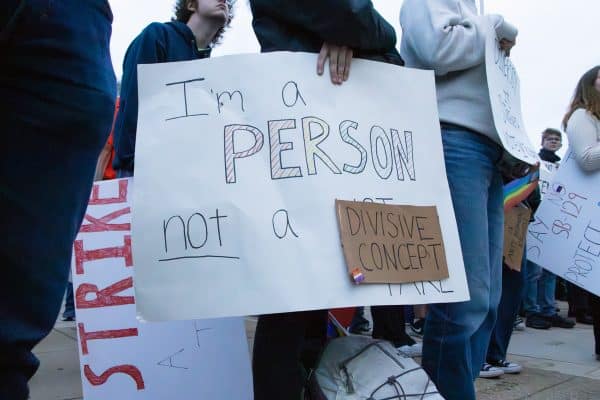Our View | Comments should be constructive
August 18, 2021
As we head into another academic year, the editors at The Crimson White want to make our platform more accessible to our readers. It’s in that spirit this we have remodeled our website.
Most notably, this remodel includes the removal of the comment sections on stories.
This decision required weeks of research and consideration from the Editorial Board to ensure that The Crimson White remains a place of accessibility, accountability and reliability.
The ability of readers to engage with published content is fundamental to the principles of journalism. In a seminal 1947 report on securing freedom of the press, the Hutchins Commission, led by University of Chicago President Robert Hutchins, said a “forum for the exchange of comment and criticism” is one of five criteria for true freedom of press.
The ability to engage with content is not just valuable; it is an inherent liberty.
It is not lost on us that this move may appear contrary to that cause. If we aim to increase accessibility, why take away their means of response? In fact, we’re seeking to make The Crimson White more accessible than ever before.
By removing comments from our website, we join a long list of journalistic outlets, including NPR.
In the case of NPR, the decision was not based on the goal of censorship or control over the way their users react to content. The decision reflected their goal to ensure that the option to comment actually served a real and effective purpose.
From their introduction on NPR’s website in 2008 to their removal in 2016, comments had transformed from an exciting feature into a platform for trolls and bigotry.
NPR found that only a slim margin of its audience used the commenting function, and even fewer used the feature in the intended way. Rather than engaging with the content in a constructive way, comments instead reflected primarily bots, spam and inappropriate language.
Comments that featured inappropriate or hateful language could even cause a misinterpretation of the piece in question, a phenomenon dubbed the “nasty effect.”
This represented an immense task for workers at NPR who were responsible for reviewing, verifying and removing such comments.
The tedious nature of this responsibility detracts from a news organization’s ability to do what it does best: to inform. The labor required for the minutiae of comment reviews takes away from valuable time that could be spent engaging with readers.
We found that the process of verifying comments presents a hurdle to productive viewer engagement. When so much time is dedicated to spam, we lose the voices of our readers.
It is for this reason that our decision to remove comments is not an isolated one. We must never remove one outlet of communication without replacing it with another. It is our duty as a platform to champion students. Taking away the voices of the students at this university would corrupt the intent of our organization.
Thankfully, we have been enriched by a digital age. If a global pandemic had occurred even a decade ago, we would not be as equipped to remain connected in isolation.
As we evolve from one innovation of online comments, we seek to follow the trend of technology and promote user engagement in new ways. We encourage readers to communicate with us through social media, letters to the editor and emails.
In the spirit of following guidelines such as the Hutchinson Commission, we will never omit the opportunity for an open dialogue.
At The Crimson White, we welcome reader feedback. By encouraging readers to respond to our content, we hope to establish a newspaper that is better, more honest and more student friendly than on the day before.
While we are a collective organization, we are also fellow students and peers of our audience. We seek to not be some faceless entity but a group of recognizable individuals with open lines of communication.
The remodel of our online platform will reflect this desire, with the contact information of our editorial team. If a reader has any question, comment or concern, we are excited to communicate with them through this outlet.
In addition to our contact information, we aim to increase accessibility through a clear and engaging web design. An interface that is user friendly is crucial to a good viewing experience. We cannot expect our viewers to appreciate our content if they have difficulty accessing it.
This web design will include an open and clear link for guest contributors to submit pieces. As it currently stands, many students are unaware that they too are able to submit pieces to be considered for publication. The ability to have one’s unique view articulated in our platform allows for diverse contributors from a range of backgrounds and disciplines.
This enhances the ability of The Crimson White to represent the people it advocates for.
While a submission is not a guarantee of publication, we welcome guests to bring their expertise and experiences. If you have an organization, involvement or passion that reflects an important consideration for our students, you should consider seeking publication, because journalism serves as one of the best outlets to bring awareness to forgotten and important subjects.
We look forward to hearing from our viewers in these ways and to providing them a better journalistic experience. As we remove one means of engagement, we do not suppress but actively invite feedback. After all, what is a news organization worth, if not for the readers it serves?










